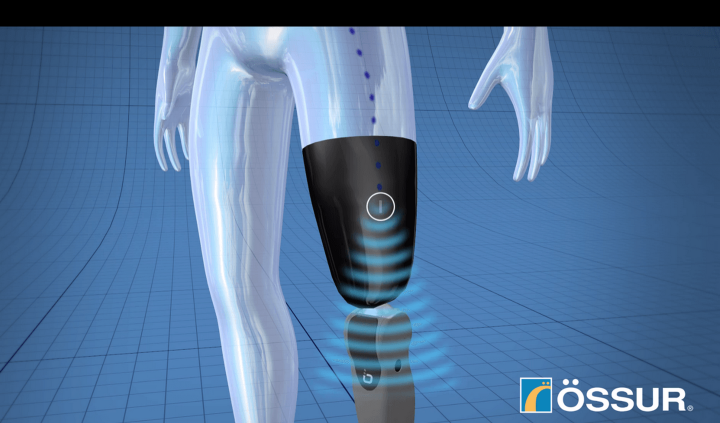
These mind-controlled devices bring prosthetics one step closer to being the real thing, with brain signals traveling directly to the artificial limb to control movement. Known as Modular Prosthetic Limbs or MPLs, it is possible that as the technology continues to develop, users may in fact be able to actually experience feeling in these man-made devices.
Speaking at the company’s Capital Markets Day in Copenhagen, Össur president and CEO Jon Sigurdsson said, “Mind-controlled bionic prosthetic legs are a remarkable clinical breakthrough in next-generation bionic technology. By adapting not only to the individual’s intentional movements but to intuitive actions, we are closer than ever to creating prosthetics that are truly integrated with their user.”
Dr. Thorvaldur Ingvarsson, the brilliant mind behind Össur’s research and development and leader of the new prosthetics project, further explained, “The technology allows the user’s experience with their prosthesis to become more intuitive and integrative. The result is the instantaneous physical movement of the prosthesis however the amputee intended. They no longer need to think about their movements because their unconscious reflexes are automatically converted into myoelectric impulses that control their bionic prosthesis.”
Two individuals have already been testing Össur’s devices for more than a year and have reported promising results. The first time Gudmundur Olafsson tried the device, he told Popular Science, he started to cry. On the other hand, the bionic mind-controlled arm being developed in the Johns Hopkins lab may face a few more obstacles before being released to the general public. While it too has been tested by a number of patients, the Food and Drug Administration has yet to give it the green light, and the price tag is staggering at $500,000 per arm. Still, the progress that is being made on both sides of the world is remarkable, and appears to herald a new generation of prosthetics that will change the way handicaps are viewed and treated.


